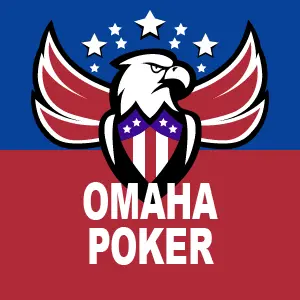Making the Move to Omaha from Hold’em
George | September 22, 2008

If you’ve been playing Texas Hold’em for a while and want a new challenge, try Omaha. This variant of Hold’em is similar in terms of betting rounds and also has a flop, turn, and river. The biggest difference is that instead of two hole cards, you’re dealt four cards and must play two of them at the showdown. Let’s focus on the differences between the two and how to best adjust your game as you try Omaha.
The single biggest mistake beginner Omaha players make is failing to shift from the Hold’em mindset. A common error is thinking you can play a single hole card to make a five-card hand. This isn’t the case, and you can lose a large pot if you make this mistake. In Omaha, you must play two of your hole cards to make a winning hand. Here’s an example of a typical Omaha hand:
- You’re dealt Ace of DiamondsQueen of Hearts5 of Spades9 of Hearts
- The board reads Ace of Clubs6 of Hearts3 of HeartsJack of Hearts5 of Hearts
Do you have a Queen-high flush or two pair (the weaker hand)? You’re holding two pair and will likely lose to another player who may have two hearts in their hole cards. This is an easy mistake to make after playing Hold’em for many years, but it must be avoided at all costs.
Types of Omaha games
In addition to the game described above, which is commonly called Omaha High, there’s also Omaha Hi/Lo (aka Omaha Split). In this game, the betting rounds are the same, but a player can win the pot with the high hand or the low hand, and often the pot is split. The strategy for this game is more complex than Hold’em due to the increased number of possible hands when players have four hole cards. While we can’t detail the strategy in this article, make sure to read our follow-up Omaha Hi/Lo strategy entry.
Unlike Hold’em, where the most popular version is No-Limit, you will mostly see Pot-Limit or Limit versions of Omaha being played. Some sites now offer NL Omaha games, but beginners should start with Limit. Omaha can quickly become a bankroll-busting experience if you’re not prepared for this exciting game! The pace of the limit version also allows new players time to think about their options without risking a large bet each time.
Conclusion
If you’re looking for a new challenge after playing Hold’em, consider Omaha. It’s a fun and very exciting game with enough action to satisfy even the craziest poker junkie. Beware, however, that the game takes time to learn, and you must avoid the traps that newer players coming from a Hold’em background often fall into.